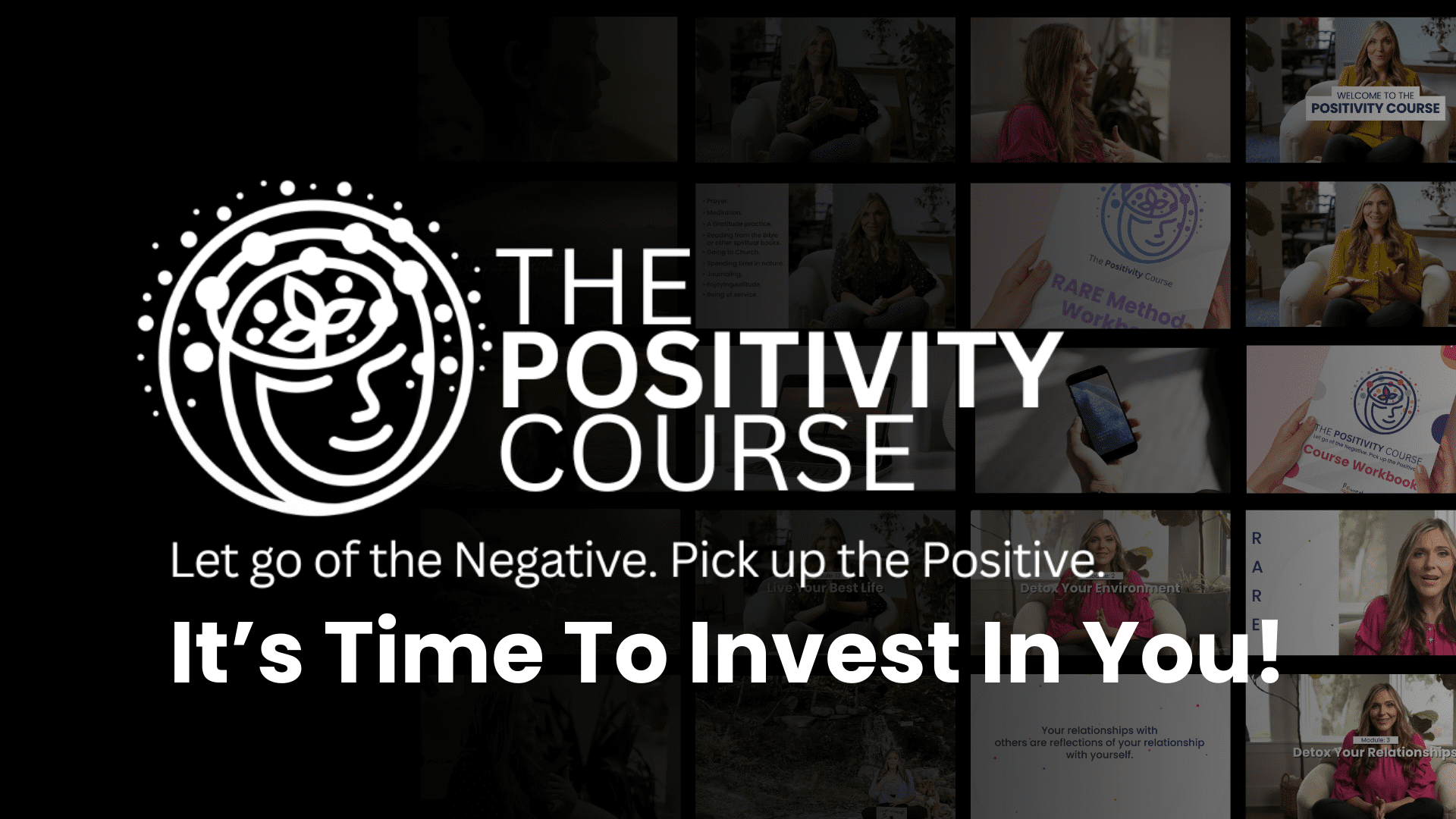Here’s how you can tell if negative thinking is holding you back.
Are you feeling weighed down, as if a cloud of gloom follows you everywhere you go? Negativity can creep into your life and impact your entire emotional well-being. Recognizing the signs that it’s time to release this burden can be the first step toward a joyous, healthier life. Let’s explore the ten critical indicators for letting go of your negativity and replacing it with positivity.
10 Signs You Must Let Go of Negativity

1 – Constant Fatigue Impairs Your Positivity
Have you noticed that you still feel exhausted no matter how much rest you get? This constant fatigue can indicate that negativity is taking a toll on your energy levels. Carrying negative emotions is like dragging an invisible weight with you everywhere you go. This burden can drain your physical and mental energy, making it hard to feel refreshed even after a good night’s rest.
Negativity induces stress, which releases cortisol, the body’s primary stress hormone. Excessive cortisol levels over long periods can cause chronic fatigue. That is why it’s crucial to identify if your tiredness stems from more than merely a lack of sleep or physical exertion. Recognizing this fatigue as a symptom of negativity can motivate you to lighten your emotional load, such as through mindfulness, exercising, or seeking support from friends and family.
2 – Frequent Irritability Reveals Negativity
Do you find yourself snapping at others over minor issues? Frequent irritability is often a sign that negativity is bubbling beneath the surface. Holding onto negative feelings makes it easy to become more sensitive and reactive to everyday stresses. This irritability can strain your relationships, making connecting with others and enjoying your social interactions harder.
Being easily annoyed can create a cycle in which adverse reactions lead to further negativity from yourself and those around you. Recognizing this irritability as a sign that you must release some of the negativity you’re holding onto is essential. Practices such as deep breathing, meditation, and reflective journaling can help you manage and release these pent-up emotions.
3 – Difficulty Sleeping Can Result From Swirling Negative Thoughts
Do you lie awake at night, your mind racing with negative thoughts? Sleeping difficulties are common for those carrying a heavy load of negativity. When you have so many negative thoughts and emotions, your mind struggles to find peace. That scenario makes it hard to fall or stay asleep. Insomnia or restless nights can become a regular occurrence, further exacerbating your overall fatigue and irritability.
Sleep is a must for good mental and physical health, and prolonged sleep deprivation can lead to serious health issues. Addressing the root cause of your sleep problems—often unresolved negative emotions—can improve your sleep quality. Consider a bedtime routine that promotes relaxation. These might include reading, gentle stretching, or calming music to help ease your mind into a restful state.
4 – Declining Physical Health Could Stem From Negativity
Have you recently experienced more headaches, stomach issues, or other physical ailments? Negativity doesn’t just affect your mind. In fact, it can also manifest in physical health problems. Stress and negative feelings can weaken your immune system, making you more susceptible to illnesses.
Common issues include the following:
- Headaches
- Digestive problems
- High blood pressure
- Heart disease.
The mind-body connection is powerful. Thus, understanding how one’s emotional state can harm one’s wellness becomes essential.
If you’ve noticed a decline in your well-being, it might be time to assess negativity’s role in your life. Adopting healthy coping mechanisms like exercising, enjoying a balanced diet, and relaxing can help you manage stress and improve your overall health.
5 – Persistent Negative Thoughts
Do negative thoughts seem to loop endlessly in your mind? Persistent negative thoughts may reveal that it’s time to release negativity. These thoughts can kick off a vicious cycle, where one negative thought leads to another, trapping you downward in an endless spiral. That can significantly impact your mental health, leading to anxiety, depression, and other emotional difficulties.
Breaking this cycle requires conscious effort and a willingness to change your thought patterns. Techniques such as mindfulness and saying positive affirmations help you reframe your thoughts and focus instead on the positive things you have in life. Remember, your thoughts shape your reality, so nurturing a more positive mindset can lead to profound changes in how you experience the world.
6 – A Lack of Motivation Could Reveal Negativity
Have you lost interest in activities you once enjoyed? A lack of motivation can signal negativity, sapping your enthusiasm for life. When negative emotions weigh you down, it’s hard to find the energy and desire to engage in activities, whether hobbies, work-related tasks, or social events. That can lead to a sense of stagnation and dissatisfaction with life.
Regaining motivation starts with acknowledging the negative emotions holding you back. Setting small, achievable goals can reignite your passion and give you a sense of accomplishment. Surrounding yourself with positivity and doing those things that bring you joy can also help lift your spirits and restore your motivation.
7 – Feeling Overwhelmed May Mean Negativity
Do you often feel like the world is closing in on you? Feeling overwhelmed by daily tasks and responsibilities can signal that you’re carrying too much negativity. This emotional burden can make even simple tasks seem impossible, leading to procrastination and feeling stuck.
When you’re overwhelmed, taking a step back and evaluating what’s causing these feelings is essential. Prioritizing tasks, breaking them into manageable steps, and seeking support from others can alleviate the pressure. Additionally, finding healthy outlets for stress can help you release negative emotions and regain control.
8 – Strained Relationships Often Reveal Negative Thoughts
Are your relationships feeling more like a source of stress than joy? Negativity can strain your connections with family, friends, and colleagues. When harboring negative emotions, projecting them onto others is easy, leading to conflicts and misunderstandings. That can create a loop of negativity that affects everyone involved.
Healthy relationships require open communication and emotional balance. If you’ve noticed that your relationships are suffering, it might be time to assess how your negativity contributes to the issue. Practicing empathy, active listening, and expressing gratitude can help improve your positivity and strengthen your bonds with others.
9 – Low Self-Esteem Connects to Negative Thoughts
Do you often doubt your worth or abilities? Negativity can significantly impact your self-esteem, leading to low self-worth and self-doubt. Feeling confident and secure in who you are is hard when you’re constantly critical of yourself. This can affect every aspect of your life, from personal relationships to professional achievements.
Building self-esteem starts with challenging negative self-perceptions. Surrounding yourself with positive people, setting realistic goals, and celebrating your achievements can help boost your confidence. It’s also important to practice self-compassion and remind yourself that everyone has flaws – and we all make mistakes.
10 – Difficulty Experiencing Joy and Positivity
Have you lost the ability to find joy in everyday moments? Negativity can dull your capacity to experience happiness and satisfaction. When you’re preoccupied with negative thoughts and emotions, it’s hard to appreciate the beauty and joy around you. This can lead to a sense of emptiness and a lack of fulfillment.
Reconnecting with joy requires a conscious effort to focus on the positive aspects of your life. Practicing gratitude every day can help you rediscover the joy in everyday moments. Remember, joy is not just about big moments of happiness but also about finding pleasure in the small, simple things.
Six Easy Ways to Reintroduce Positivity into Your Life
These tips can help you swap those negative thoughts for positivity:
- Create a Vision Board: Visualize your dreams and goals by creating a vision board. Use images, quotes, and symbols representing what you want to achieve and how you want to feel. Place it somewhere you’ll see it daily to keep you inspired and focused on positive outcomes.
- Nature Immersion: Spend time in nature to rejuvenate your spirit. Whether hiking in the mountains, walking in the park, or simply sitting by a river, connecting with nature can ground you and provide a sense of peace and positivity. Engage in forest bathing or gardening to deepen your connection with the natural world.
- Try Art Therapy: Use creative outlets like painting, drawing, writing, or playing music to express your emotions and release negativity. Art can be an incredible tool for self-expression and healing, allowing you to process and transform negative feelings into positive energy.
- Pay Kindness Forward: Spread kindness by doing something unexpected for strangers or loved ones. This action could be as simple as paying for someone’s coffee, leaving a kind note, or volunteering your time. Kindness creates a ripple effect of positivity, enhancing your mood and the recipient’s.
- Laughter Yoga: Join a laughter yoga class or try it independently. Laughter yoga combines deep breathing exercises with spontaneous laughter, promoting physical and emotional well-being. Even artificially, laughing releases endorphins and reduces stress, leaving you feeling more positive and energized.
- Daily Positivity Journal: At the end of each day, jot down your positive experiences in a journal. It could be a compliment you received, a kind gesture you observed, or a personal accomplishment. Revisiting these positive moments can help you end your day on a high note and cultivate a habit of looking for the good each day.
Final Thoughts on Recognizing the Signs You Must Release Negativity
Letting go of negativity is not always easy. Still, it’s a crucial step toward a happier, healthier life. By recognizing the signs that it’s time to release negativity, you can take proactive steps to improve your mental, physical, and emotional well-being. Embrace positivity, seek support, and focus on the good in your life. The journey to a more positive outlook may have challenges. But the rewards of a brighter, more joyful existence are well worth the effort. Shine on!



















